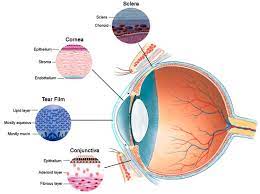Is There A ‘Best’ Diet? Here Are 5 To Consider

In the quest for optimal health and fitness, the question of the ‘best’ diet often surfaces. However, defining the best diet is complex because it depends on individual goals, lifestyles, body chemistry, and dietary preferences. Nevertheless, here are five dietary approaches that have gained popularity due to their various benefits and principles.
1. Mediterranean Diet
The Mediterranean diet draws inspiration from the eating habits of countries bordering the Mediterranean Sea. It emphasizes fruits, vegetables, whole grains, legumes, nuts, and olive oil. Fish and poultry are recommended sources of protein rather than red meat. Numerous studies have linked the Mediterranean diet with a lower risk of heart disease, stroke, and Type 2 diabetes.
2. Plant-Based Diet
A plant-based diet focuses on foods primarily from plants. This includes fruits, vegetables, nuts, seeds, oils, whole grains, legumes, and beans. It doesn’t mean that you are vegetarian or vegan and never eat meat or dairy; rather, you are proportionately choosing more of your foods from plant sources. Adopting a plant-based diet can aid in weight loss and improve heart health.
3. Paleo Diet
The Paleo diet seeks to emulate the eating patterns of our Paleolithic ancestors with an emphasis on consuming whole foods such as vegetables, fruits, nuts, seeds, lean meats especially grass-fed game and wild-caught fish and avoiding processed foods and grains. Proponents argue that this diet leads to improved health outcomes by reducing the intake of processed foods.
4. Ketogenic (Keto) Diet
The ketogenic diet is a high-fat, adequate-protein, low-carbohydrate diet that forces the body to burn fats rather than carbohydrates as its main energy source. This results in ketosis—a metabolic state whereby your body burns fat for energy instead of carbs—and can lead to significant weight loss.
5. Intermittent Fasting
Intermittent fasting involves cycles of eating and fasting periods; it’s not a diet in the traditional sense but rather an eating pattern. The 16/8 method (eating within an 8-hour window each day) and the 5:2 method (eating normally five days a week but restricting calories to 500–600 on two days) are popular variations. Research suggests intermittent fasting could help with weight loss and improve metabolic health.
It’s essential to consider personal preferences and nutritional needs before choosing a dietary plan. There is no one-size-fits-all answer when it comes to nutrition; what works for one person may not work for another. The key is finding a sustainable eating pattern that helps achieve personal wellness goals while also providing pleasure and satisfaction from food.






